A glimpse of life onboard the Chinese fishing boats dominating West Africa’s seas
Fishermen in the Chinese fleets that ply the waters off the coast of West Africa spend between 20 and 30 days aboard a boat, where their biggest concerns are typhoons, getting caught in the machinery and ropes used to pull hauls of fish in, and boredom that they try to alleviate by sleeping, smoking, and reading between shifts.
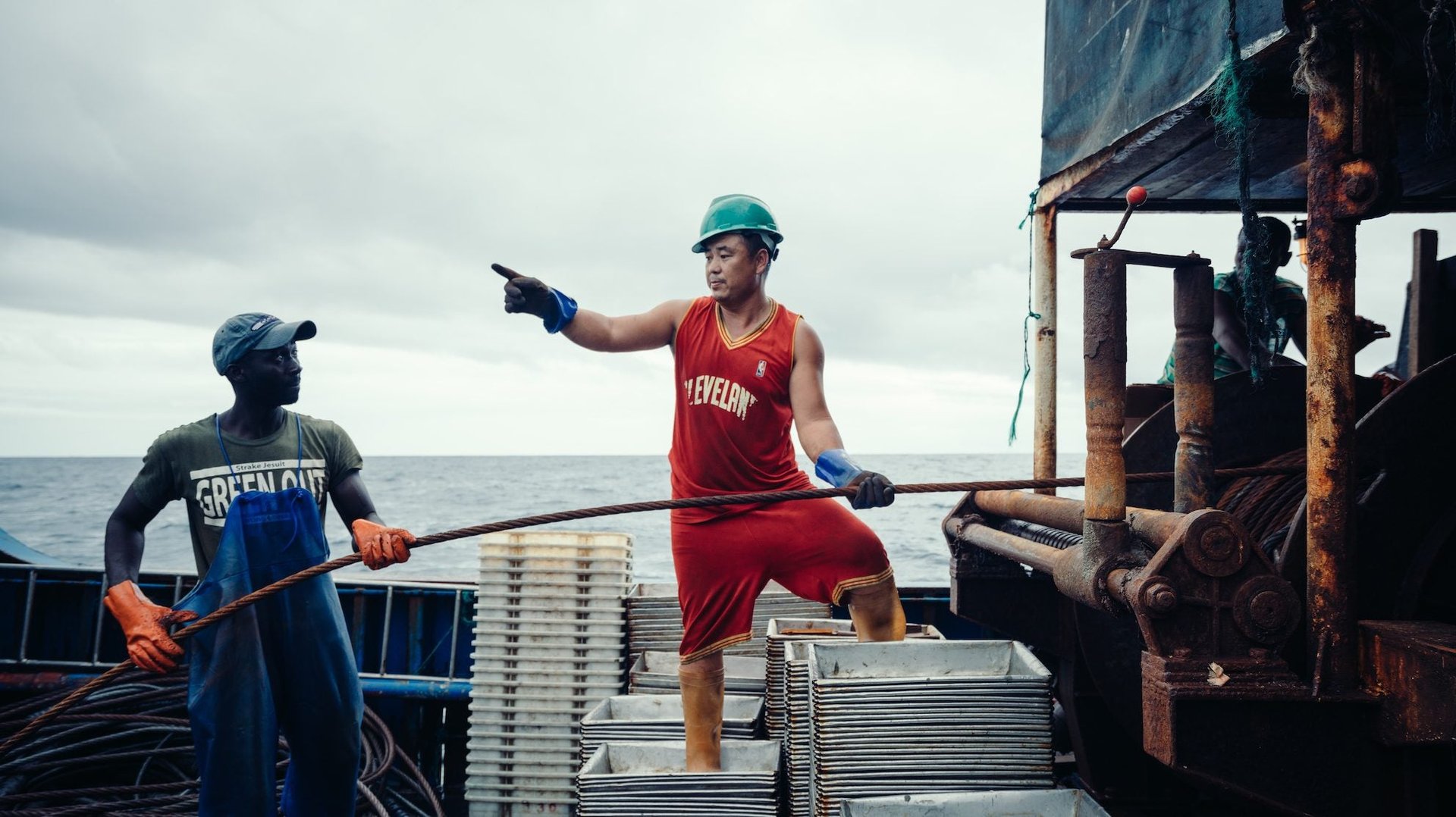

Fishermen in the Chinese fleets that ply the waters off the coast of West Africa spend between 20 and 30 days aboard a boat, where their biggest concerns are typhoons, getting caught in the machinery and ropes used to pull hauls of fish in, and boredom that they try to alleviate by sleeping, smoking, and reading between shifts.
That’s the world that Yuyang Liu, 25, a self-taught Chinese photographer, spent over a month in this summer, when he went to Senegal and Mauritania to document the influx of Chinese fishing fleets for the nonprofit Greenpeace. Liu, from Shanghai, was impressed by the extent of Chinese operations in the region. “Chinese are spreading in the world, more than I ever imagined,” he says.
China is now the largest fishing power in West Africa, home to more than 500 Chinese industrial fishing fleets in seas once dominated by Russian and European operations, according to Greenpeace. Environmentalists say the waters can’t support this level of fishing for long, and that local fishermen will eventually be left with nothing to catch.
“Without improvement on regional fishery management and industry fishing vessels’ performances, including Chinese and EU vessels, the depletion of West Africa’s ocean will only be an issue of timing,” says Wenjing Pan, a researcher for Greenpeace. “After the fish and fishing giants have both gone, local fishermen will face big challenges earning their livelihood.”
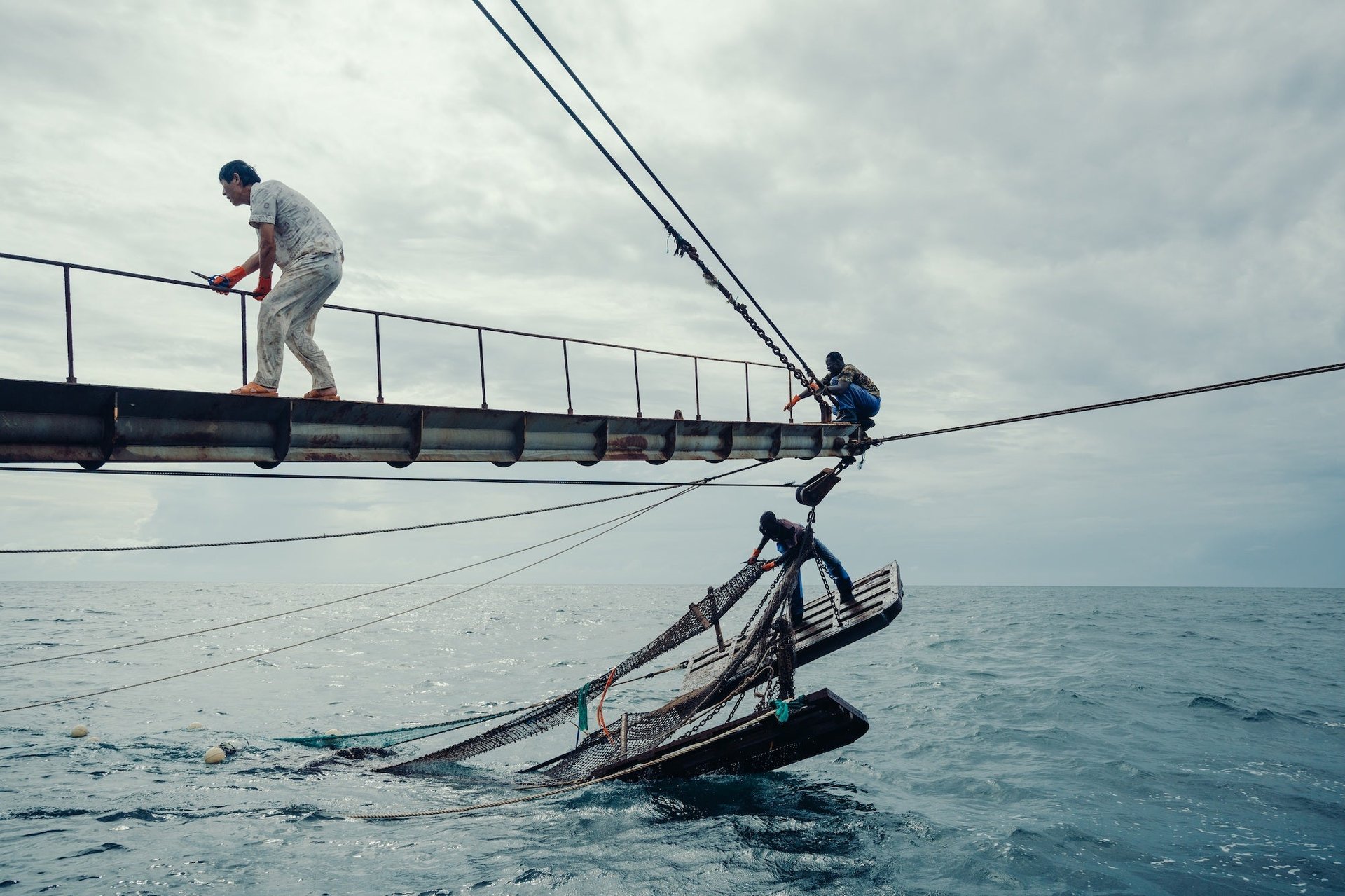
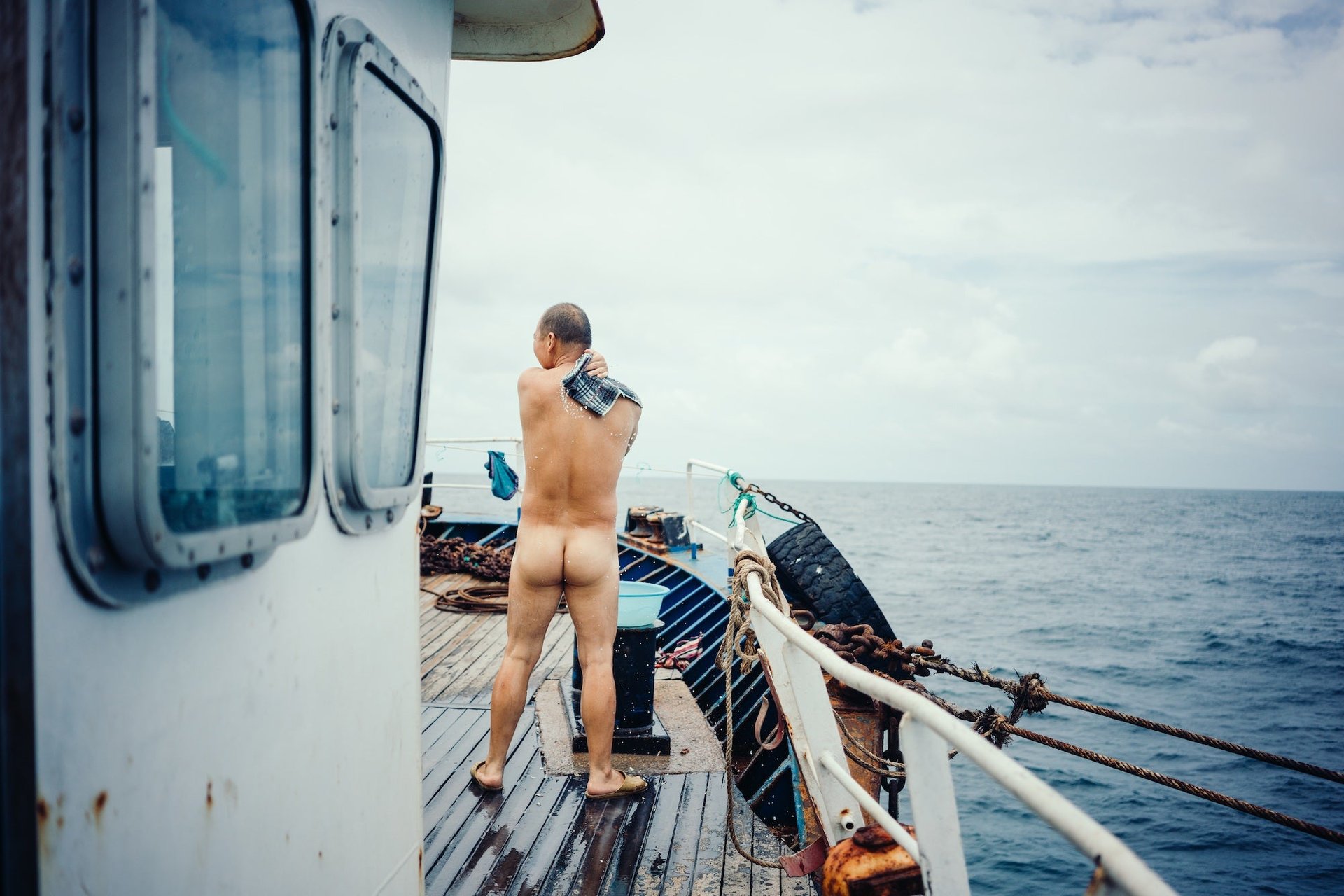
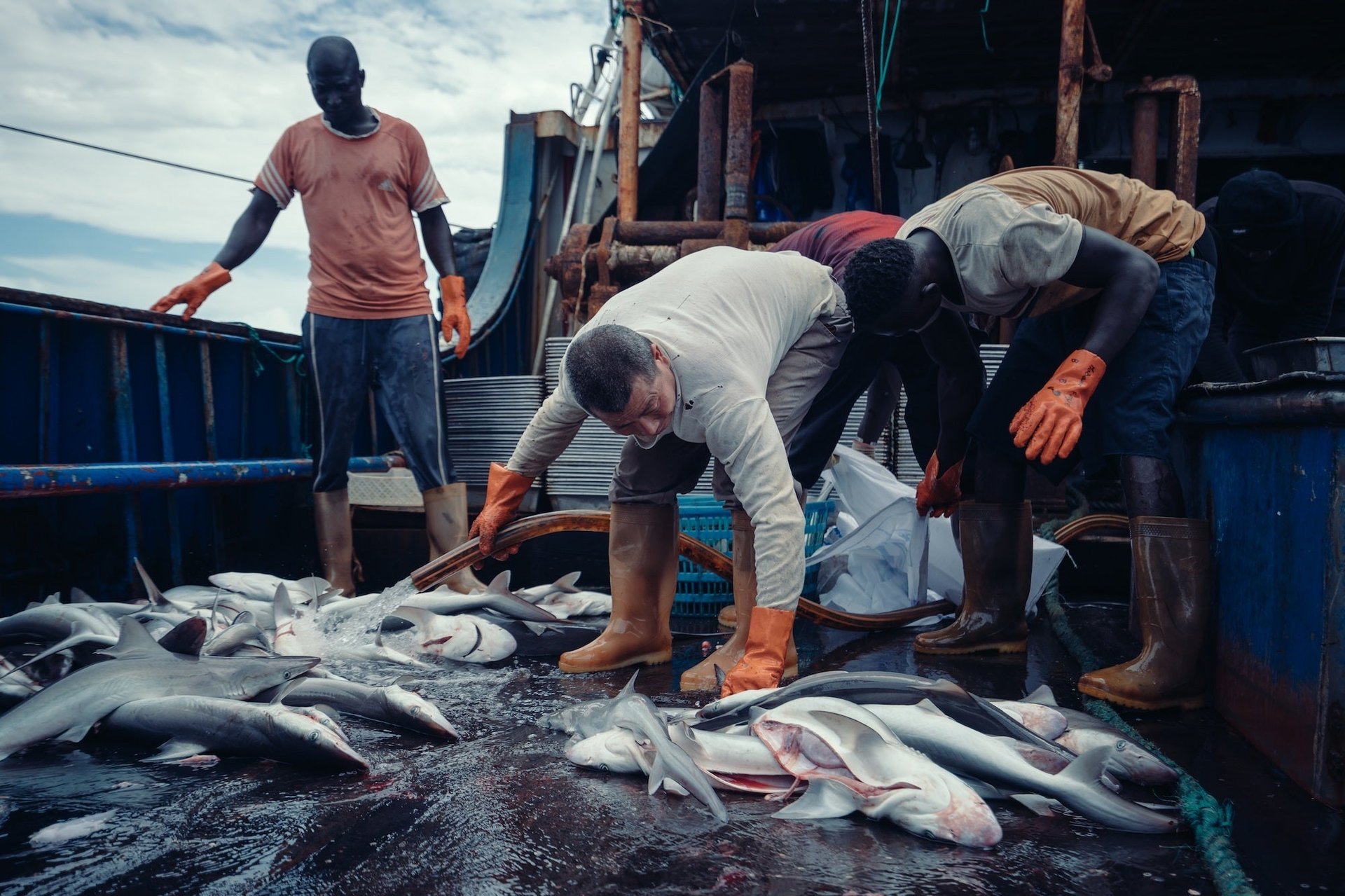

Since Chinese fishing vessels began arriving in West Africa in the 1980s, reported catches have increased almost twelve-fold to 3.6 million tonnes in 2009—from just 300,000 tonnes in 1950, according to Greenpeace. Illegal fishing is also becoming more common: Over the course of 26 days, Greenpeace reported witnessing 16 cases of illegal fishing by Chinese vessels, mainly fishing in prohibited areas off the coast of Guinea.
Local fishermen told Liu that fishing has become harder for them since the Chinese fleets moved in. Unable to compete with the machinery and size of Chinese operations, they have to travel farther out to find new catches. Many vie for jobs on the Chinese-run trawlers.
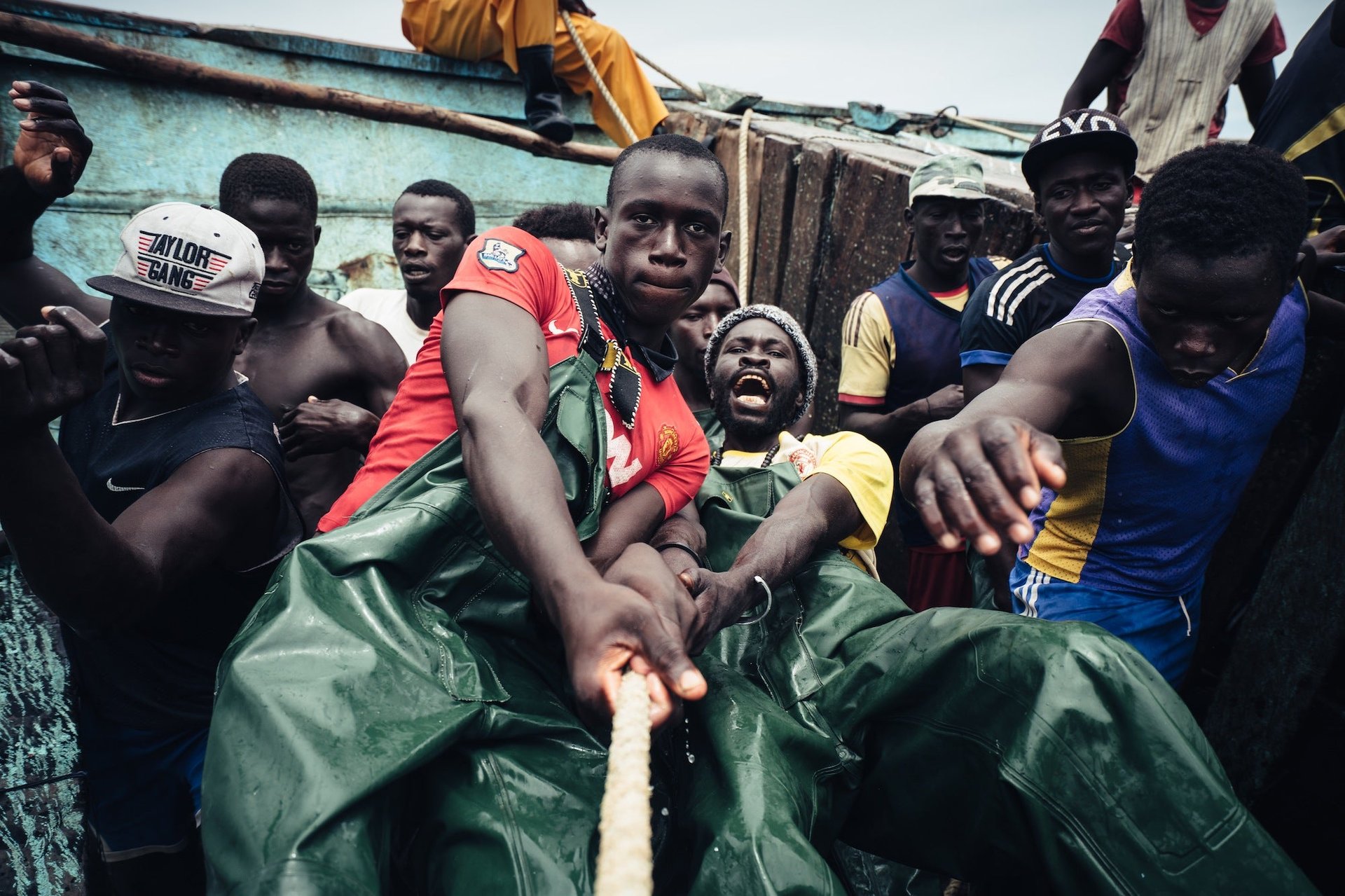
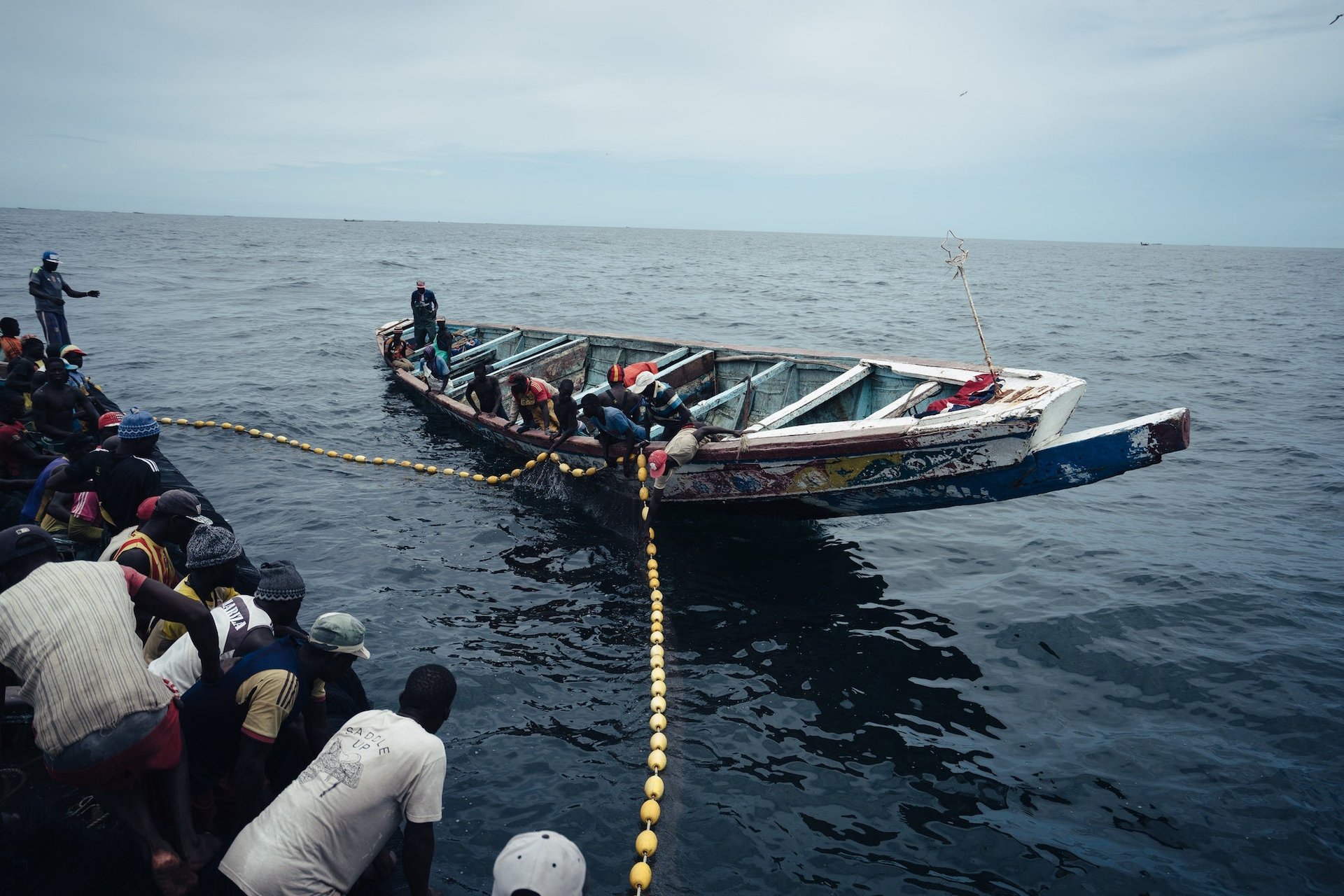
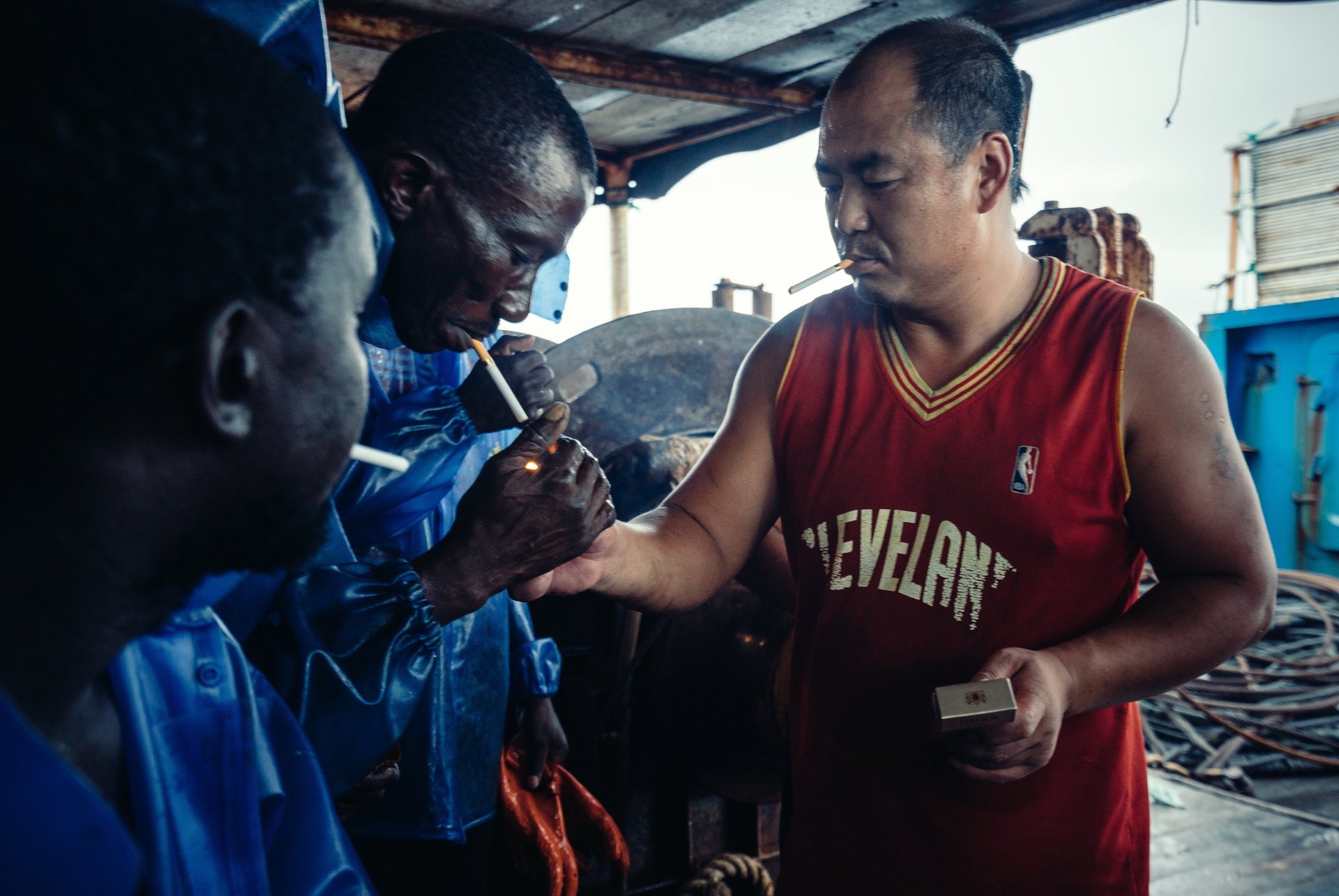


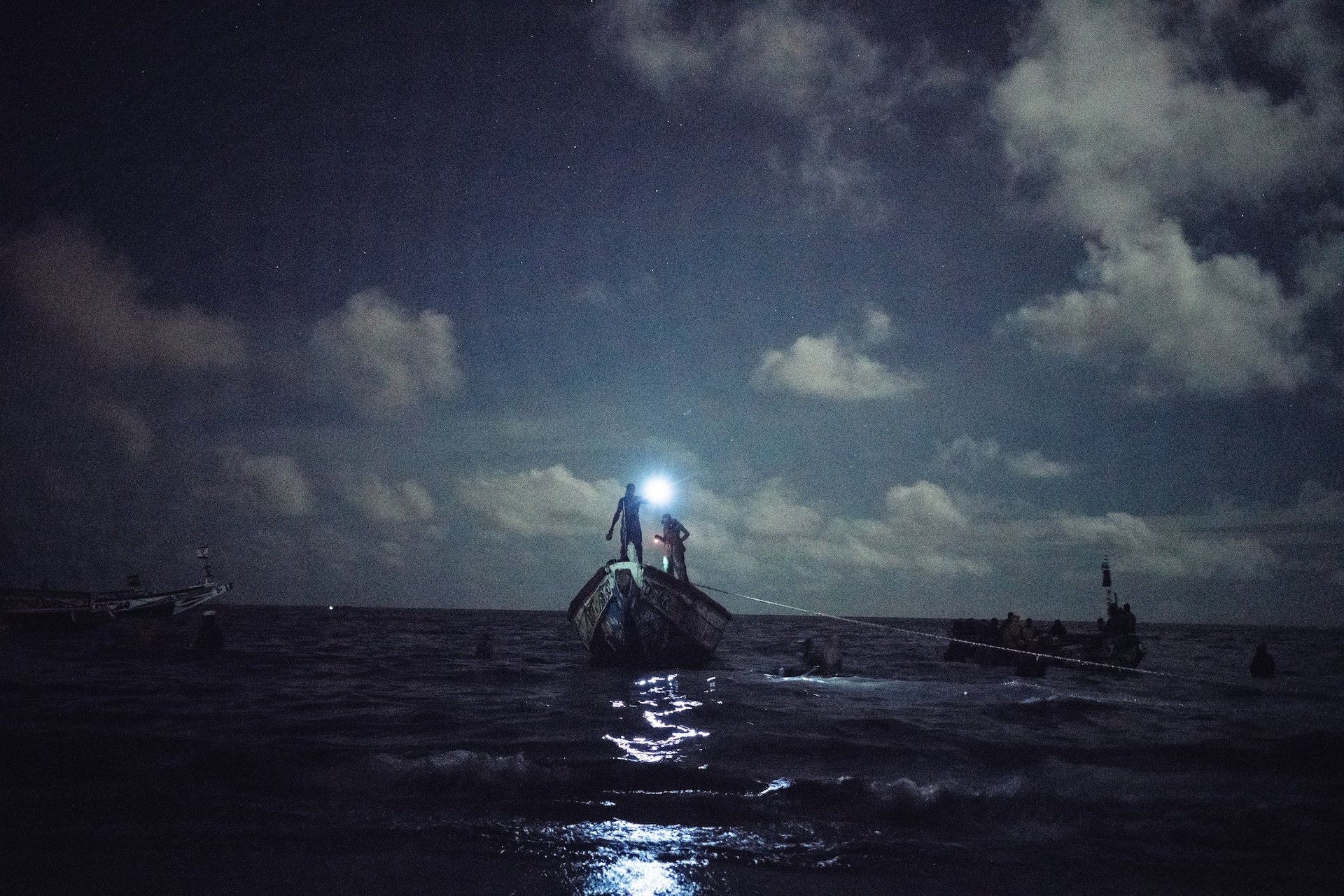
China’s global fishing operations, which have grown as fish stocks in China’s waters have shrunk, are a broader concern. China’s long-distance fishing fleet, numbering over 2,000 vessels, is ten times the size of America’s, according to a Greenpeace report in August. And a European Parliament report in 2013 estimated that the amount of fish caught by Chinese ships around the world may actually be 12 times what China was reporting to the UN Food and Agriculture program.